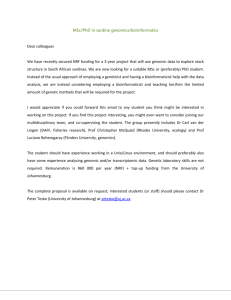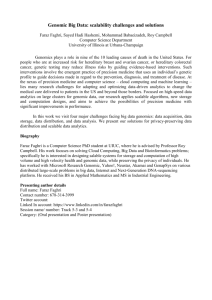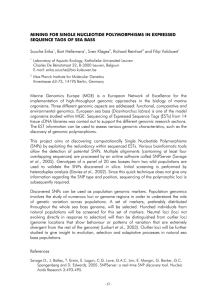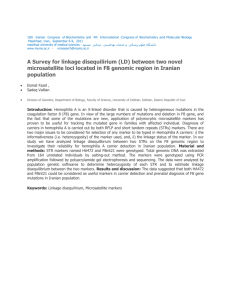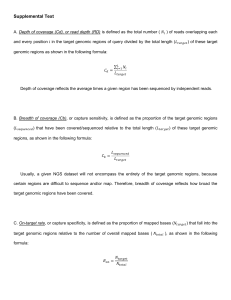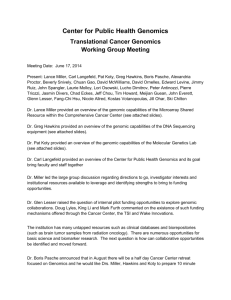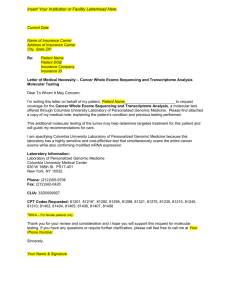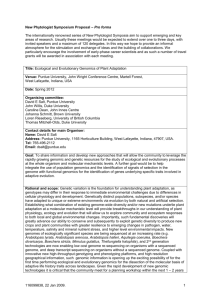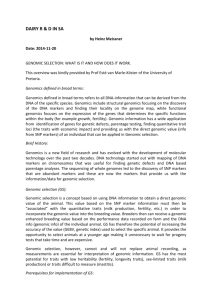Slides - Indiana University
advertisement
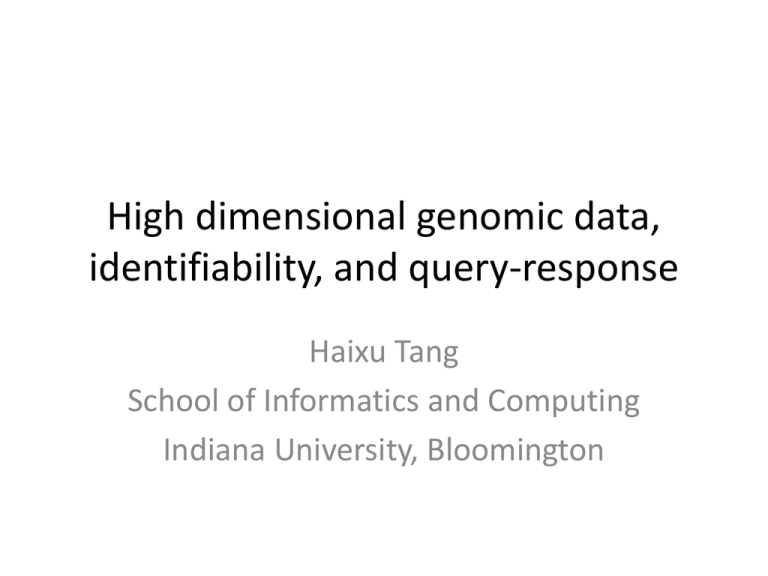
High dimensional genomic data, identifiability, and query-response Haixu Tang School of Informatics and Computing Indiana University, Bloomington “Big Data” in Personal Genomics • Genomics is a key component of personalized medicine – Massive • Large research-oriented projects: 1000 genomes to 106 • Genome sequencing for all new-borns? • Open data project, e.g., the Personal Genomics Project (PGP) – Heterogeneous • Genomic sequence (variations) • Constant, dynamic monitoring – Transcritpomics, proteomics, metabolomics, microbial communities, etc. (as demonstrated by iPOP) Challenges in Personal Genomics Personalized Healthcare Research (secondary) Analysis Detection of markers for diagnosis and treatment (pharmacogenomics) Discovery of markers Sharing Sharing patient data among health practitioners Searching for successful treatment on similar patients (“patient like me”) Methodology development Validation of markers Challenges: Speed, Storage, Scalability, Security Solution: cloud, hybrid cloud, bring computing to the data! Privacy Enhancing Technologies Personalized Healthcare Research (Secondary) Analysis Detection of markers for diagnosis and treatment (pharmacogenomics) Discovery of markers Sharing Sharing patient data among health practitioners Searching for successful treatment on similar patients (“patient like me”) Methodology development Validation of markers Cryptographic protocols: SMC, homomorphic computation, functional encryption Database security approaches: access control, query auditing, differential privacy Ethic studies, informed consent, policy What is specific for genomic data? • Challenges – Genome technologies evolve very fast! – Genomic data are extremely high dimensional • Millions of SNPs, easily identifiable • Balance between data security and utility – Not only the data, but also analysis results need to be protected • Allele frequencies or test statistics (e.g., Homer’s attack) • Special properties – Different dimensions are NOT independent • Genetic structures (e.g., linkage disequilibrium) – Specific genomic research focuses on a small number of dimensions (e.g., disease-associated SNPs)
